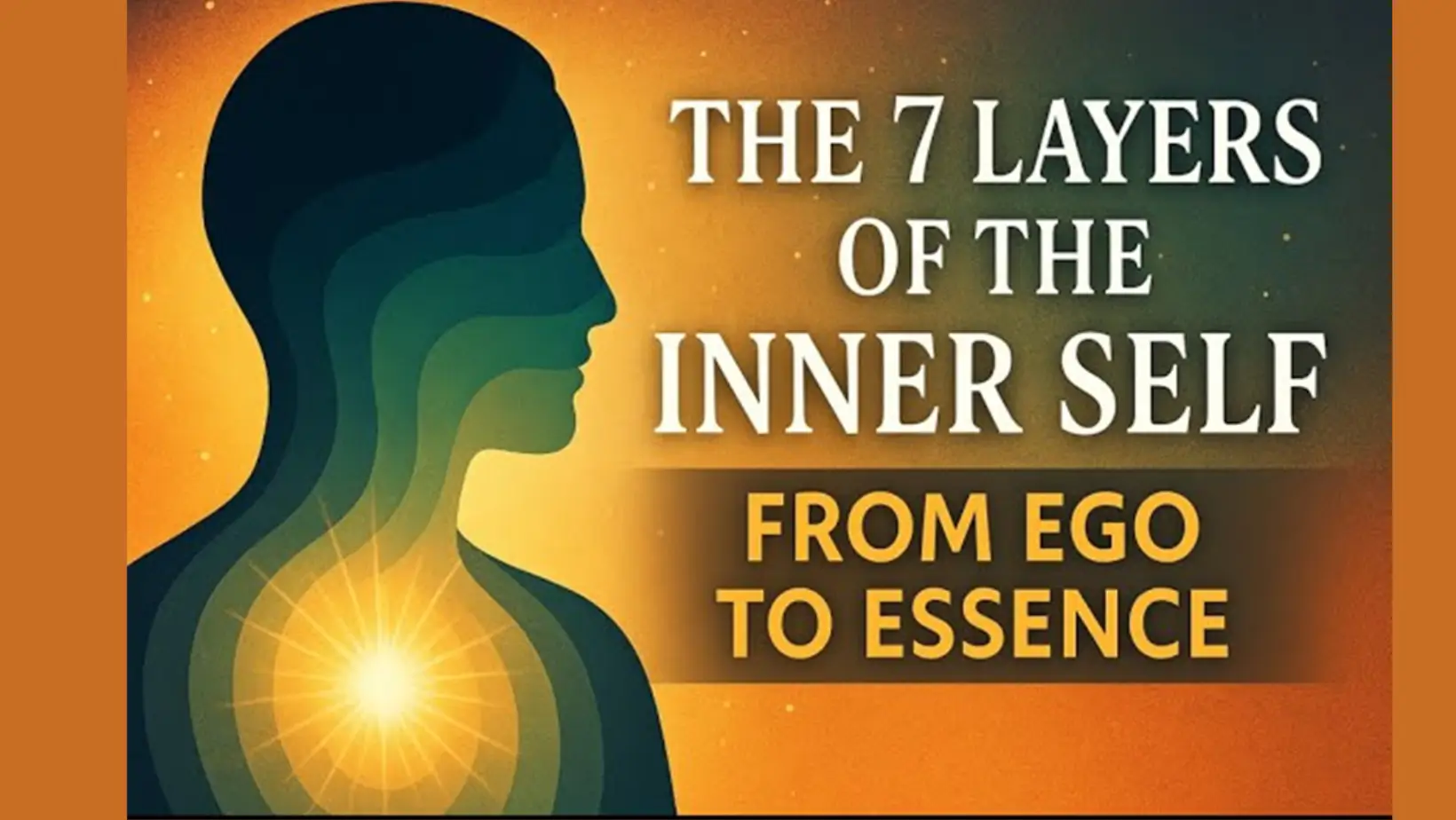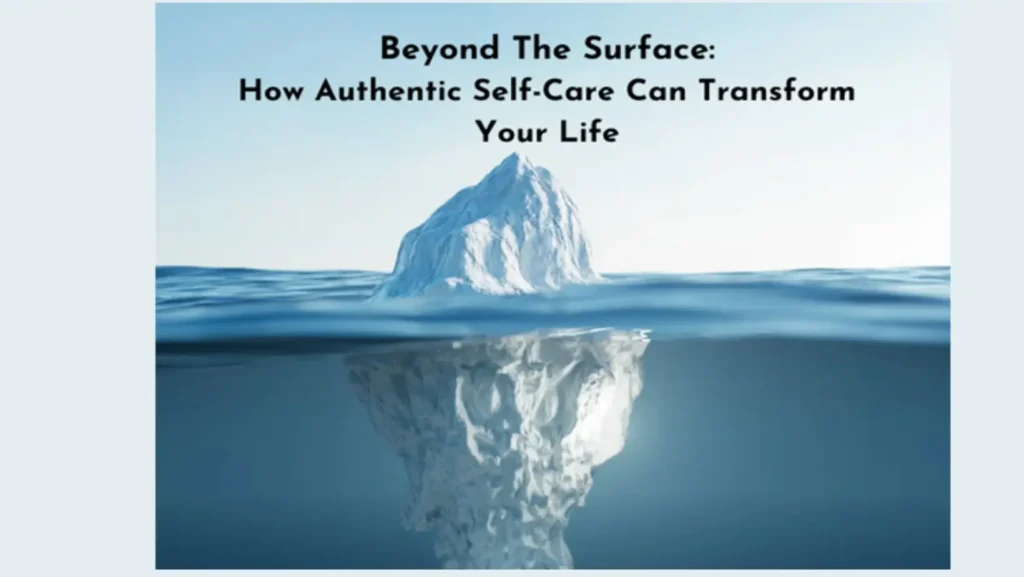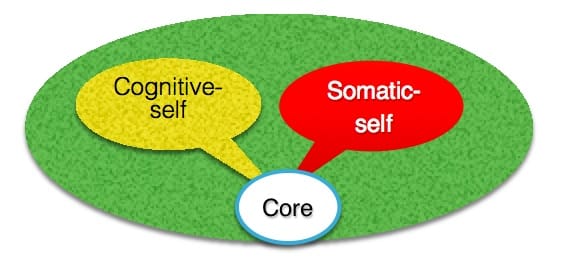
We often ask ourselves, “Who am I?” Not in the sense of our roles. Not in the sense of our titles. Also, not in a sense of being our real self underneath all the chatter. We are taught to look externally by society. We get told how to act, what to believe, and who we should be. Also, we go through motion. We live for approval. But there is emptiness deep inside.
That emptiness is not weakness. It is a divine message. It whispers, “Come back to yourself.” Allah reminds us in the Qur’an, “And in yourselves, will you not see?” (Qur’an, 51:21). The way back to self is not via the world. It is through the self. We just have to move through the layers like onions – layer by layer.
Each layer has something hidden. Some layers hide pain. Others lie or fear. But under all layers is your essence, your soul, your ruh. It is the ruh that has come directly from Allah. It is a ruh with light, as well as peace and truth. And it knows the way home.
The Surface Self – Roles, Labels, and Masks
We all live behind roles. We become daughters, brothers, students, workers, or partners. These roles help us survive. However, the roles we play become a mask. Sometimes we are sad, but we smile. Sometimes we are broken, but we act strong. Islam cautions against false faces. The Prophet ﷺ said, “The worst type of person is the two-faced.” (Bukhari)
This layer of the self is not truly you. It is merely the surface.
Psychologists describe this layer as the “social identity.” I had a read about a woman who spent her entire life being oriented to her parents since she was a child. On the outside, she smiled. On the inside, she was lost. Her real healing began when she asked the question, “Who am I, underneath this structure?”
Read more: Mom’s Smart Genes? Truth about Intelligence

The Conditioned Self–Beliefs Borrowed from Others
Beneath our roles lie our beliefs. Many of our beliefs are not our beliefs at all. We gather beliefs as children. We have parents, a culture, teachers, media, and other sources that deposit thoughts into the child. Some deposit: “You are lazy.” Others: “You must be perfect.” Those irritating messages are inside our heads for years.
But are they true? The Qur’an states, “They only follow assumptions, and assumptions cannot replace the truth.” (Qur’an 53:28)
The Emotional Self – Hidden Pain, Triggers and Trauma
Within this subsequent layer lies pain. Pain exists, and it is here where your inner wounds lie. Triggers are also found here. Sometimes, someone might say one little word wrong, and your entire system reacts. That reaction is not random. It is a memory screaming at you from within.
Islam encourages self-reflecting: “And in your selves, will you not see? (Qur’an 51:21). Psychology explains this experience as stored trauma, as Dr. Bessel van der Kolk states, “the body keeps the score.”
A girl who feared abandonment became clingy during her marriage. Her husband felt like he was being smothered. However, after doing some emotional work and prayer, she began to feel peace. Naming your feelings is important. They deserve to be heard. Once they speak their peace, then ask them, “What do you need from me?”
The Protective Self-Ego, Defensiveness, and Control
This layer wants to protect you. It hides your hurt. It erects walls of pride, blame, and anger. The ego states, “I am always right.” It lives outside the truth to keep yourself feeling safe. The problem is that this also prevents you from accessing healing.
As the Qur’an reminds us: “Have you seen the one who takes as his god his desire?” (45:23), the ego does not appear weak; it tries to look strong. In reality, the ego’s deeper desire is to solve your fears. Our body attempts to protect itself, and psychology calls these defense mechanisms. Defenses can include denial, projection, or blaming the other person.

The Witness Self – The Silent Observer Within
Now we get to the quiet part within. This self-watches. It does not react. It witnesses thoughts, feelings, and pain, just as a calm sky is above storms.
The Prophet ﷺ would often sit in silence. Before becoming a prophet, he would reflect in a cave. This is witness mode. It is similar to mindful watching. Allah told us in the Qur’an, “And Allah is over all things, a Witness.” (Qur’an 33:55)
A woman once said in therapy, “I am not my depression. I am the one watching it.” That one shift changed her life! Sit quietly each day and watch your thoughts float by. Let them go without any judgment at all. This is how the witness self-awakens to life.
The Heart Self – Intuition, Fit rah, and Inner Guidance
Deeper than thoughts is the heart. This is your fitrah — the pure nature Allah gave you. The heart knows what is true. The heart whispers to you what the mind cannot articulate or explain. Islam encourages us to follow it.
The Prophet ﷺ said, “Ask your heart, even if they give fatwa.”(Ahmad) The heart knows when something feels right. The heart knows when something does not feel right, too — it contracts.
Imam Al-Ghazali is a real person, an example of this. He left behind fame and books because he felt lost in his heart. He spent years
The Core Self – The Soul (Ruh)
At the deepest level is the soul. The soul is not created by you. It is from Allah. The Qur’an says, “I breathed into him from My Spirit.” (Qur’an 15:29)
Your soul is pure, peaceful, and light. It does not judge, fear, or compete. It only seeks reconciliation with Allah. The Prophet ﷺ said: “He who knows himself, knows his Lord.”
A woman who had lived with anxiety her whole life realized something new. She said, “My soul just wanted to trust Allah.” That moment changed everything for her. You go into your soul by going inwards. You remove layers, layer by layer, very gently – but with love and reflection and honesty.
Read more: The Silent Reader: Do You Hear a Voice?

Conclusion
Each layer conceals both pain and wisdom. Each one holds the answer to your wholeness. This world teaches you to look outward. But your truth lies in your inward journey.
Islam, the psychological world, and your heart — all lead you home. Take your time. Go slow. Trust each step. You are not becoming someone new. You are just returning to who you are.
As Rumi said, “You have wings, why crawl through life?”
So, start your journey inward. At the end of your journey, you will not only find yourself,
You will find your Lord.



Leave a Reply